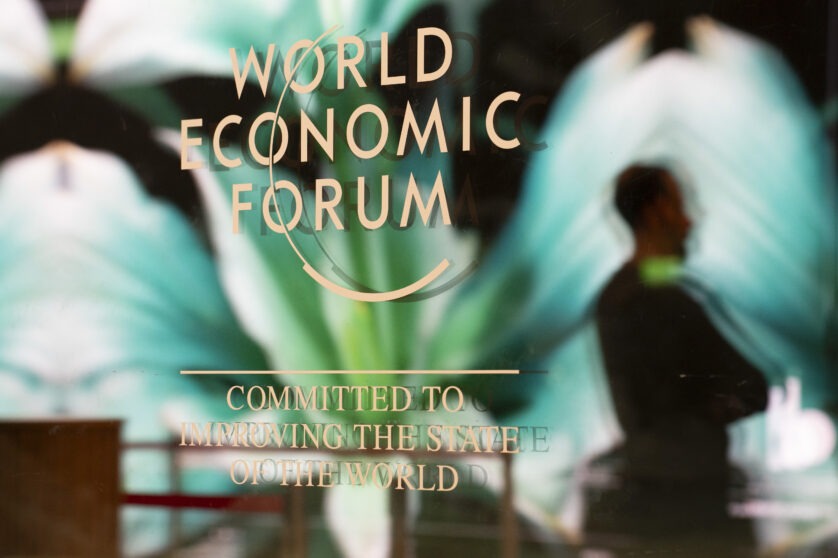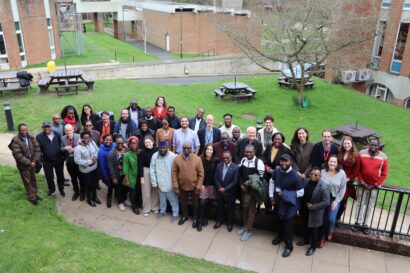Underscoring the “dramatic rise of economic inequality,” more than 260 billionaires and millionaires recently called on global leaders to introduce higher taxes for the extremely wealthy.
In an open letter, entitled Proud to Pay More, officials attending the 54th Annual Meeting of the World Economic Forum in Davos, Switzerland last week were urged to tax “the very richest in society” in order to “turn extreme and unproductive private wealth into an investment for our common democratic future.”
“Our drive for fairer taxes is not radical. Rather, it is a demand for a return to normality based on a sober assessment of current economic conditions… Inequality has reached a tipping point, and its cost to our economic, societal, and ecological stability risk is severe – and growing every day,” it read. The letter comes at a time where imposing higher taxes on wealth has gained popularity at least among US dollar millionaires from across G20 countries, as shown in a recent Survation poll done on behalf of Patriotic Millionaires.
What are the implications for low-income countries?
The letter’s signatories are primarily from Europe and the USA, but what about the growing number of millionaires in low-income countries? One report projects Africa’s millionaire population will rise by 42% over the next eight years, to nearly 195,000. The OECD estimates that Africa loses as much as $60 billion each year in illicit financial flows, some of which will be down to tax evasion.
Taxing high net worth individuals (HNWI), particularly in low-income countries, is an area of focus for ICTD and one in which we have already undertaken extensive work.
In Uganda, ICTD researchers worked closely with tax authorities to evaluate the establishment of a dedicated HNWI unit in 2015. ICTD research has shown that, before the HNWI unit was established, only 17 wealthy individuals existed on the taxpayer register; a number that increased to 356 individuals after the unit’s establishment. Similarly, the filing of tax returns among wealthy individuals increased from 13 per cent to 78 per cent within a year of establishing the unit. Although these efforts yielded immediate and substantial revenue gains of over US$5.5 million within the first year of the unit’s operation, significant barriers persisted, hindering the enforcement of effective strategies to curb evasion. These results highlighted the need of high-level political and administrative support to curtail HNWI’s economic and political influence and in turn enforce their tax compliance (see Small Nets for Big Fish? Tax Enforcement on the Richest – Evidence from Uganda).
In Sierra Leone, recent ICTD research provided an initial assessment of the potential of taxing HNWIs in the context of a growing need to increase domestic revenue following the Covid-19 pandemic. The researchers found that while there was a relatively strong legal framework to facilitate the taxation of HNWIs, there was insufficient data within the revenue authority to facilitate the identification of these individuals. However, even with the limited data, researchers were still able to signal economic sectors where prospective HNWIs were engaged in (see How Might the National Revenue Authority of Sierra Leone Enhance Revenue Collection by Taxing High Net Worth Individuals?).
Expert perspectives
Giulia Mascagni, ICTD co-Director of Research
At the ICTD, we have long been arguing in favour of taxing HNWIs more effectively, both globally and in lower-income countries. While many of the world richest individuals go to great lengths to hide their wealth in tax havens, the open letter published last week shows that there are also many extremely wealthy individuals who beg to differ. Many of the common myths in this debate can – and should – be busted. Far from stymieing economic growth, the letter’s signatories argue that wealth taxes would re-direct resources from unproductive individual wealth to new investment opportunities in society – while generating resources for tackling inequality and green transformation on a global scale, both of which are positively associated with economic growth and development. Far from facing insurmountable political opposition, the wealthy themselves are telling leaders at Davos that they would welcome steep increases in their tax payments. The reforms they are suggesting would only target the wealthiest in society and keep tax payments unchanged for the majority of citizens, ensuring everyone benefits from greater public resources.
ICTD research on the legal and administrative constraints to taxing the wealthy shows that much can already be done within existing frameworks, especially in lower-income countries. Many of the tax tools needed to capture the incomes and wealth of HNWI, such as taxes on capital gains, rental income, and property, are already enshrined in the tax laws of most countries. Progress on digitisation and international exchange of information provide better data and systems more than have ever before been available to enforce these tax tools more effectively, although they come with their own challenges. Especially in lower-income countries, much progress can be achieved by simply enforcing existing tax tools, before engaging in more complex processes to introduce new ones, like the wealth tax.
Mbakiso Magwape, international tax expert
There are two avenues through which the international tax regime provides an opportunity for coordinated taxation of individuals classified as HNWI:
- information sharing through exchange of information mechanisms
- substantive rules relating to taxation of HNWI.
The first is achievable through bilateral tax treaties, or multilateral instruments, such as the OECD Convention on Mutual Administrative Assistance in Tax Matters. This presents the opportunity to request for information or automatically receive information relating to taxpayers, which includes individuals, specifically HNWI, in order to enforce measures such as mitigating capital flight, and identifying high-risk transactions and potential evasion.
On substantive rules, very limited progress has been made regarding multinational approaches on taxing HNWI. The UN has made inroads on the taxation of HNWI over the past few years, following increased prominence in global tax coordination. The only substantive progress in this regard, is the development of a proposed model legislation of a net wealth tax undertaken by the UN, the latest report being the 26th UN Committee of Experts on International Cooperation in Tax Matters meeting. A model tax treaty may benefit states in harmonised approaches, but may have limited utility, as such a tax was highly dependent on other elements of a country’s domestic tax law, such as capital gains and exit taxes.
Jalia Kangave, ICTD Associate Research Fellow
What our research on taxing HNWIs in Africa has taught us so far is that individuals earning modest incomes from employment on average pay over 90 per cent of personal income taxes, while the wealthy contribute very little. In fact, in many cases, they do not even appear on taxpayer registers.
This is not because there are no laws in place to facilitate the taxation of these individuals. In the countries that we have worked in, strong legal frameworks exist. Indeed, in a number of cases, the wealthy are also publicly known. And while some countries may not have sufficient data to enable tax authorities to identify these individuals, in most cases, the main challenge is a political one. What we are finding in our research is that most of the wealthy are either politicians or politically connected.
In Uganda, for example, one third of the individuals that were initially identified on the Uganda Revenue Authority’s HNWI register were either politicians, former politicians or individuals with political influence. When we interview government officials, what we hear is that they are eager to tax these individuals. But they are often limited in the extent to which they can enforce the laws, without “getting calls from above”.
Does this mean all hope is lost? I don’t think so. But perhaps the voices calling for the taxation of HNWIs in Africa will not come from the wealthy, as was the case in Davos. It seems that in Africa’s case, these calls will need to come from actors such as civil society organisations, who are already playing an increasingly active role in tax issues.
Obviously, it is one thing to collect taxes and quite another to spend it on tackling inequality. The hope would be that as more HNWIs pay taxes, they will have an incentive to ensure that governments are more accountable for how that money is spent.
Wilson Prichard, ICTD Executive Director and LoGRI Chair
Efforts to strengthen the taxation of the wealthy are particularly needed in lower-income countries, as those governments have struggled most acutely to collect revenues from the rich. Most efforts to strengthen taxation of the rich in lower-income countries have focused on personal income taxes, for good reason: collection of personal income taxes averages only about 3 per cent of GDP in lower-income countries, as compared to closer to 10 per cent in wealthier countries, with large and well documented gaps in compliance among the wealthy.
More often overlooked is the potential importance of taxes on property – which also represent a direct tax on wealth rather than income. Evidence suggests both that the wealthy in lower-income countries have tended to invest heavily in real estate, and that the taxation of the properties has been hugely ineffective. Collection of income taxes on rental income is notoriously ineffective. Meanwhile, property taxes are by far the most underperforming major tax types across lower-income countries: whereas high performing countries collect 2-3 per cent of GDP in property taxes many lower-income countries collect as little as 0.1-0.2 per cent of revenue.
That underperformance is driven by poor taxation of high value properties, which are often not registered at all or are severely undervalued for tax purposes, owing to a combination of poorly designed systems, corruption and political interference. But the potential for rapid transformation is there: an ICTD-supported project in Freetown to reform the property tax system saw a five-fold increase in revenue potential and a three-fold increase in the first year. More impressively, that was driven almost entirely by fairer valuation and collection among the owners of high value properties: the average tax liability among the top 20 per cent of property owners tripled as a result of reform, while tax liabilities for lower-income groups actually declined.
You can read more of ICTD’s research on taxing HNWIs here.




